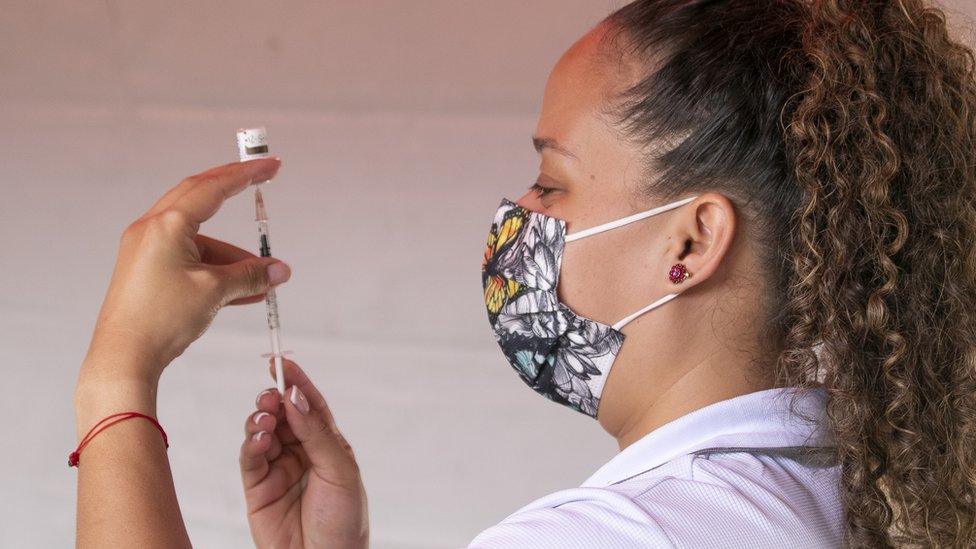Covid vaccine to be mandatory for children in Costa Rica
- Published

The decision makes Costa Rica the first country to mandate Covid-19 vaccinations for children aged 5 to 11
Costa Rica has become the first country in the world to make Covid-19 vaccinations mandatory for children.
The jab will join the extensive list of basic childhood vaccinations already required by law, health officials said.
The country signed a deal with Pfizer to acquire doses to start vaccinating all under-12s from March 2022.
Earlier this week, the US health regulatory bodies approved the Pfizer/BioNTech vaccine for children aged five to 11.
Most children are unlikely to get seriously ill if they catch Covid-19 but may still be infectious, even with no symptoms. The vaccine could help stop them from spreading the virus to others.
Costa Rica's deal with Pfizer will see it receive 3.5 million doses, of which 1.5 million will be reserved for those aged five to 11. The others will be for third doses to be given to first responders, the elderly population and immunosuppressed people.
To date, about 55% of the population have been fully vaccinated in the country, according to Our World in Data figures.
More than 70% of those aged between 12 and 19 have now received at least one dose of the vaccine, officials say.
The US decision to approve the Pfizer/BioNTech vaccine for children aged five to 11 has cleared the way for 28 million young Americans to get vaccinated. They are given a jab with a third of the dosage administered in adults.
US mothers divided on vaccines for young children
Officials at the Food and Drug Administration determined that the vaccine was around 91% effective in preventing Covid-19 in young children, and that their immune response was comparable to that seen in people aged 16 to 25. No serious side effects were found by researchers.
More countries are expected to follow suit.
EXPLAINER: Children's very low Covid risk confirmed by study
IN CHARTS: Tracking the pandemic